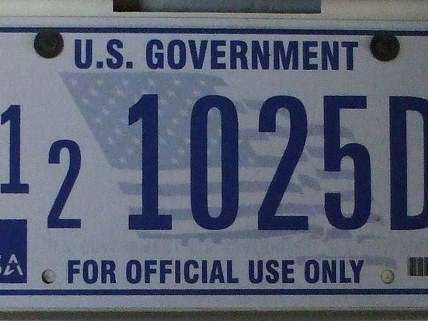DHS: License Plate Tracking Scheme? We Know Nothing! And Now It's Canceled.

Perhaps daylight does send the cockraches scurrying, after all. After a chorus of outrage over a Department of Homeland Security solicitation for bids to establish and maintain "a National License Plate Recognition (NLPR) database service," the feds now claim the whole project was unauthorized by DHS or by Immigration and Customs Enforcement, in whose name it had been posted.
Damn those rogue federal solicitations.
In a statement, Gillian Christensen, a Deputy Press Secretary at U.S. Immigration and Customs Enforcement, wrote:
The solicitation, which was posted without the awareness of ICE leadership, has been canceled. While we continue to support a range of technologies to help meet our law enforcement mission, this solicitation will be reviewed to ensure the path forward appropriately meets our operational needs.
The allegedly unauthorized solicitation for a database that would "track vehicle license plate numbers that pass through cameras or are voluntarily entered into the system from a variety of sources" excited widespread opposition from civil liberties advocates, especially since it included no reference to privacy protections. Despite ICE's role, the system was clearly not meant to be confined to the borders, and called for "records from metropolitan areas within the US."
Even after the cancellation, the Jennifer Lynch of the Electronic Frontier Foundation cautions:
However, DHS may still be accessing national license plate data—collected by the private company Vigilant Solutions—on an ad hoc basis. According to documents obtained by the ACLU of Massachusetts, ICE agents and other branches of DHS have been tapping into Vigilant's data sets for years.
Whether that ad hoc access to license plate tracking involvess "the awareness of ICE leadership" is anybody's guess.
Editor's Note: As of February 29, 2024, commenting privileges on reason.com posts are limited to Reason Plus subscribers. Past commenters are grandfathered in for a temporary period. Subscribe here to preserve your ability to comment. Your Reason Plus subscription also gives you an ad-free version of reason.com, along with full access to the digital edition and archives of Reason magazine. We request that comments be civil and on-topic. We do not moderate or assume any responsibility for comments, which are owned by the readers who post them. Comments do not represent the views of reason.com or Reason Foundation. We reserve the right to delete any comment and ban commenters for any reason at any time. Comments may only be edited within 5 minutes of posting. Report abuses.
Please to post comments


The Jennifer Lynch?
They'll repost the solicitation in four months, when everyone has fogtten about it.
Anyone who has done business with a government agency (either as a member of the agency trying to procure something, or a vendor trying to sell something) knows that these sorts of things routinely yo-yo back and forth between being out of bid and being recalled for revision. It's a result of duelling bureaucratic fiefdoms, not any concerns raised by the public.
Huh? I've never given any information about my plates to any Vigilant Solutions, so how do they collect their data?
They run the plate recognition cameras at a variety of locations, and buy the data collected by other such devices from those operators.
The program just became classified.
The light only sends them scurrying for cover, it doesn't kill them.
Not a chance this was done without leadership knowing. They wouldn't put up an RFP without funding or a funding request that was likely to be approved, and any funding request of any significance goes up through leadership.